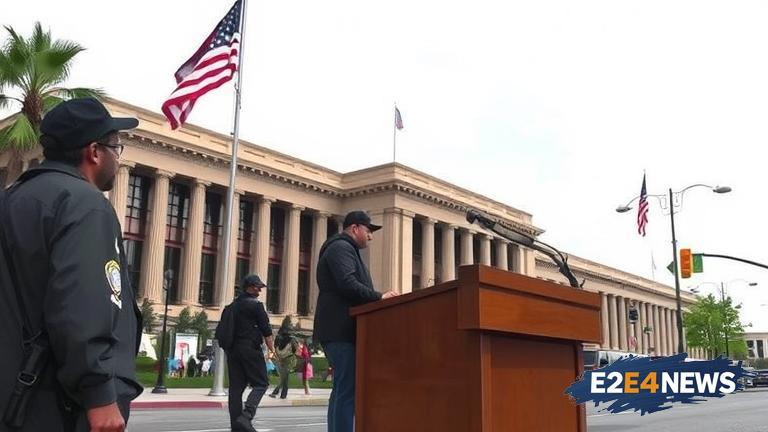A recent ruling by a federal judge in Los Angeles has significant implications for immigration policies in the United States. The judge ruled that Immigration and Customs Enforcement (ICE) can no longer profile and detain individuals based solely on their immigration status. This decision is a major victory for immigrant rights advocates who have long argued that such practices are discriminatory and unconstitutional. The ruling stems from a class-action lawsuit filed on behalf of individuals who were detained by ICE in the Los Angeles area. The plaintiffs alleged that they were targeted and detained by ICE based on their race, ethnicity, and immigration status, rather than any actual suspicion of criminal activity. The judge found that ICE’s practices did indeed constitute profiling and that the agency had failed to provide sufficient evidence to justify the detentions. This ruling has far-reaching implications for immigration enforcement in the United States, as it limits the ability of ICE to engage in profiling and requires the agency to provide more robust evidence before detaining individuals. The decision is also seen as a major setback for the Trump administration’s immigration policies, which have been widely criticized for being overly aggressive and discriminatory. Immigrant rights advocates are hailing the ruling as a major victory, while ICE officials have expressed disappointment and are considering appealing the decision. The ruling is also likely to have significant implications for other cities and states across the United States, as it sets a precedent for how immigration enforcement should be conducted. In recent years, there has been a growing trend of cities and states pushing back against federal immigration policies, with many declaring themselves ‘sanctuary cities’ and refusing to cooperate with ICE. This ruling is likely to embolden these efforts and lead to further challenges to ICE’s authority. The decision is also a reminder of the ongoing debate over immigration reform in the United States, with many arguing that the current system is broken and in need of overhaul. As the country continues to grapple with these issues, the ruling in Los Angeles is likely to be seen as a significant milestone in the fight for immigrant rights. The ruling has also sparked a renewed conversation about the need for greater transparency and accountability within ICE, as well as the importance of protecting the rights of all individuals, regardless of their immigration status. Furthermore, the decision highlights the importance of the judiciary in checking the power of the executive branch and ensuring that the rights of all individuals are protected. In conclusion, the federal judge’s ruling in Los Angeles is a significant development in the ongoing debate over immigration policies in the United States, and its implications are likely to be felt for years to come.
